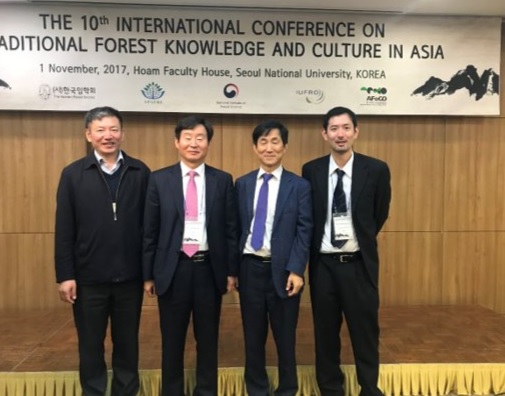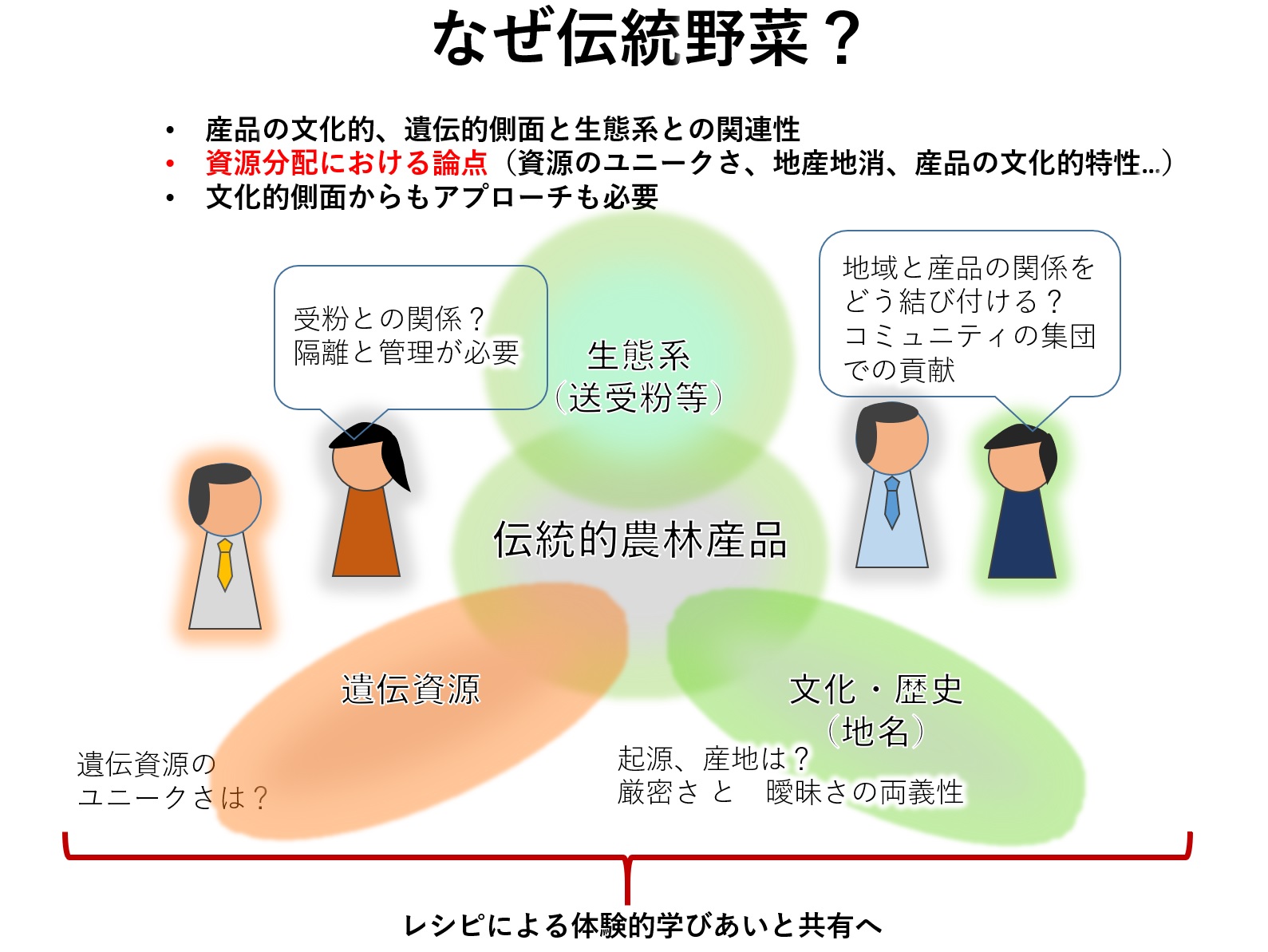
- 2017年
- プロジェクトの始動
薬、食品、化粧品等に応用される遺伝資源とそれに関わる伝統知は、利用されて初めて恩恵があり、提供国側と利用国側の「不信感」を背景とした対立が生じている現在、セクター、国、世代といった垣根を越えて連携した活動が喫緊の課題である。そこで本プロジェクトでは、遺伝資源として注目されている伝統野菜、養蜂を題材に、日本、韓国、中国の東アジアにて、栽培、調理に関する知識の学びあいと体験を通じた文化理解を推進する。伝統野菜が社会に息づく「生きた遺産」となるには、各地域における先人の改良努力に敬意を払いつつ、ルーツや遺伝資源の交流があったことを学びあい、文化交流を通し国や世代を超えた調理法や価値を見出し、現代社会での伝統野菜の位置づけが必要となる。世代間、地域間のつながりを強化することで、「東アジア・共感モデル」を発信することにより、長期的な視点から「共感」をベースに資源利用をめぐる「不信感」の払拭を目指す。なお、2021年度からは、公益財団法人韓昌祐・哲文化財団より助成を受け、関連プロジェクト「伝統野菜の学び合いから日韓の世代を超えた文化・環境の相互理解へ」(代表:香坂玲)(参照:https://www.hanchangwoo-tetsu.or.jp/topics/grant/resultlist2020/)を実施している。
「Benefit from genetic resources is utilized for producing medicines, foods and cosmetics. It is necessary that related traditional knowledge be acknowledged when relevant resources are utilized. There is distrust between provider and user countries, and Access and Benefit Sharing arising from utilization of genetic resources (ABS) became an urgent global issue. Collaborations amongst civil society, private, public sectors and transition across-generations are necessary. In this project, we focused on traditional vegetables and beekeeping as genetic resources. By doing so, mutual cultural understandings in Japan, China, and Korea are facilitated by learning and practices on producing and cooking the resources. To transmit the traditional vegetables as living heritage, we re-evaluate their values in contemporary society by individual learning about their origins and roots and by sharing and developing new cooking methods while respecting historical efforts. By strengthening the linkages among regions and generations, we propose “East Asian empathy model” through the use of genetic resources and trust-buildings in long-term perspectives.」

| 名古屋大学(プロジェクト代表) | 香坂玲 |
|---|---|
| 名古屋大学 | 内山愉太 |
| 名古屋大学 | 三宅良尚 |
| 岐阜大学 | 堀江未央 |
| 国立遺伝学研究所 | 鈴木睦昭 |
| 四日市商業高等学校 | 世良清 |
| NPO法人江戸東京野菜コンシェルジュ協会 | 大竹道茂 |
| 東京都練馬区役所 | 浅井葉子 |
| Seoul National University | Yeo-Chang Youn |
|---|---|
| Seoul National University | Mi Sun Park |
| Institute of Traditional Korean Food | Sook Ja Yoon |
| Hanju Seonwon Temple | Sun Jae |
| Chung Nam Institute | Kihueng Kim |
| Korean Native Bee Association | Eom Woosup |
| Forest for Life (NGO) | Yeong Min Lyu |
| Chonbuk National University | Seonghee Kim |
| Renmin University of China | Jinlong Liu |
| Fujian Provincial Academy of Forestry | Hong Zhimeng |
| Renmin University of China | Zhang Minghui |
| Fujian Agriculture and Forestry University | Su Shipeng |
| Fujian Provincial Forestry Department | Wei Chujiang |
| Zhejiang Provincial Qianjiangyuan National Park Administration | Qian Longqiu |
| Fujian Provincial Forestry Department | Yuan Guosheng |
| Sanming Prefecture Forestry Department | Pang Mingzi |
| Shaxian City of Fujian Province Forestry Department | Lin Hua |